Uniformly Accelerated Motion - Constant Acceleration, Uniform Acceleration
In this article we are going to study a very important topic of class 9. We will go through to this topic by covering the given topics one by one. In uniformly accelerated motion we will see what is uniform acceleration that is uniform acceleration definition, example of uniform acceleration, what is constant acceleration, equation of uniformly accelerated motion, difference between uniform acceleration and non-uniform acceleration, constant accelerated motion and its formula.
JEE Main/NEET 2027: Physics Important Formulas for Class 10
NEET 2025: Mock Test Series | Syllabus | High Scoring Topics | PYQs
JEE Main: Study Materials | High Scoring Topics | Preparation Guide
JEE Main: Syllabus | Sample Papers | Mock Tests | PYQs
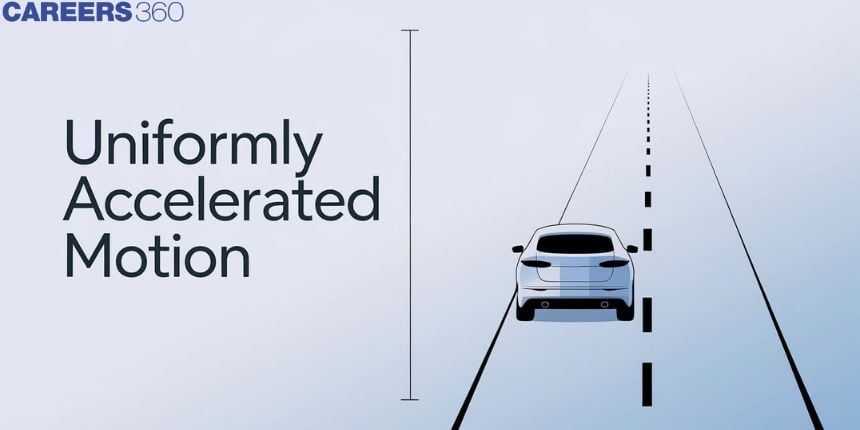
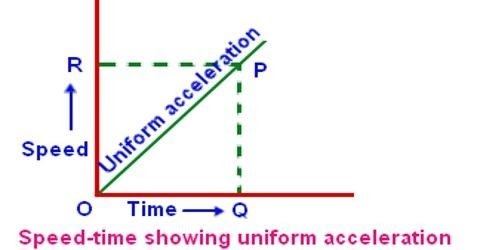
First let’s revise,
What is acceleration?
Rate of change of velocity with respect to time is known as acceleration.
Any person who is speeding up, speeding down, or changing its direction while moving is accelerating. This means that acceleration is associated with change in speed or in direction or both of them.
A = dv / dt here a is representing acceleration
V is velocity and t is time
Also read -
- NCERT Solutions for Class 11 Physics
- NCERT Solutions for Class 12 Physics
- NCERT Solutions for All Subjects
What is uniform acceleration / uniformly acceleration definition
If a vehicle maintains a constant or a uniform change in its velocity in a given time interval along a straight line then the vehicle is said to have a constant acceleration and its motion is defined as uniformly accelerated motion.
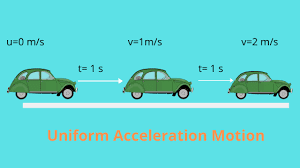
Uniformly accelerated motion is the motion of an object in which acceleration through out the motion is uniform. So acceleration w is constant. In the case of uniformly accelerated rectilinear motion, the object moves with uniform speed with zero acceleration.
Example of uniform acceleration
There can be various examples of uniformly accelerated motion are :
1. Motion of a ball dropped from a height a body moving with a constant speed in a straight line has a uniform motion.
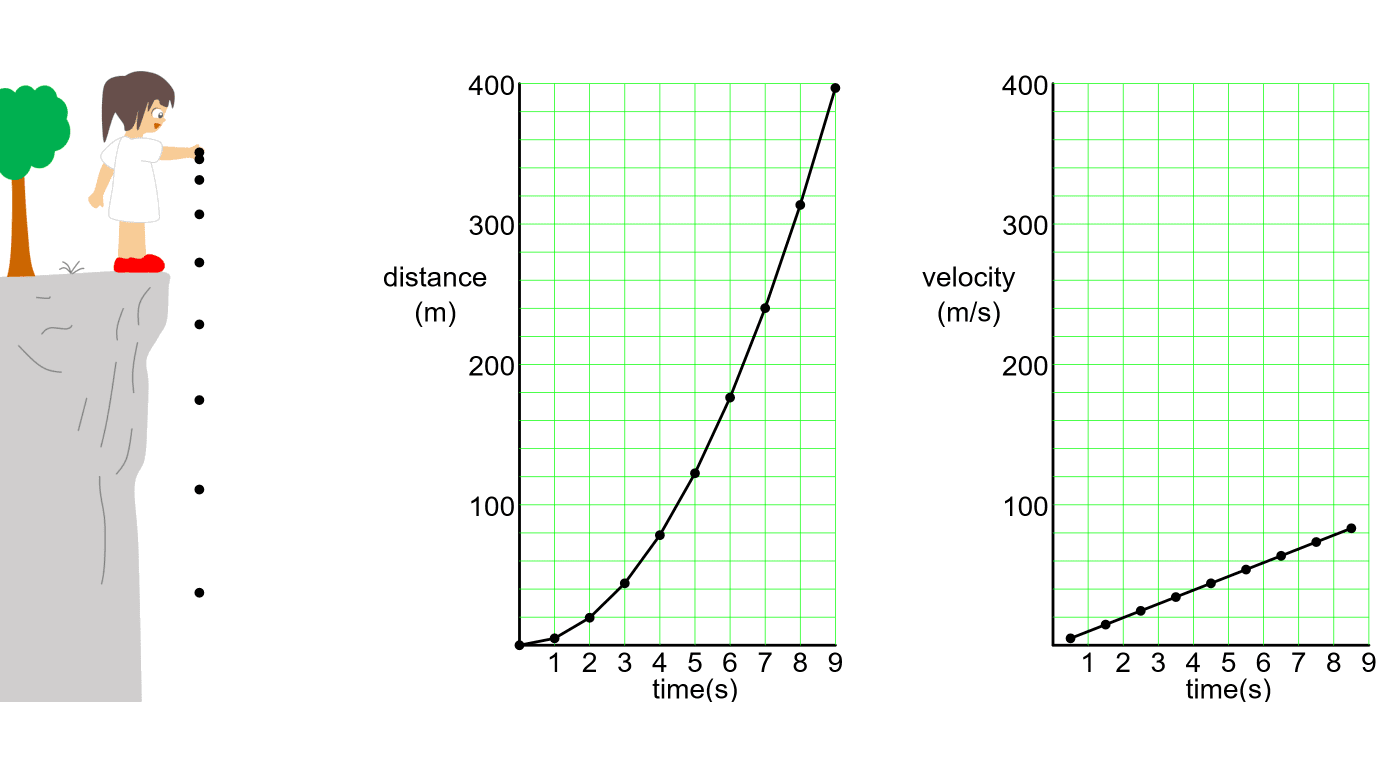
2. Motion of a bicycle going down the slope of a road when the rider is not paddling and the wind resistance is negligible .
3. A freely falling body is also an example of uniformly accelerated motion.

- Motion of earth around the sun and many more.
Equation of uniformly accelerated motion
Kinematics equation for uniformly accelerated motion
a = the acceleration taken to be constant,
t = time the object has been accelerating,
v0 = initial velocity of the GIVEN object,
vf = FINAL velocity of the object at time t ,
∆x = displacement of the object during the time interval.
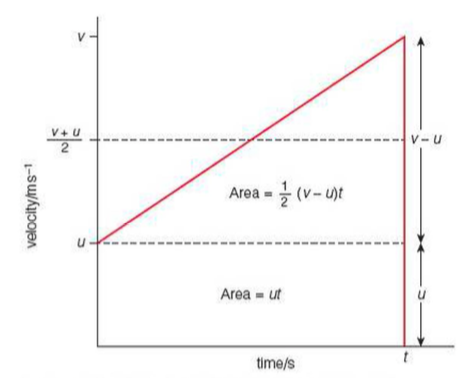
- First equation of motion
Vf = v0+ at
- Second equation of motion
∆x =vo t + ½ at2
- Third equation of motion
∆x = ½ ( vf + vo) t
- Fourth equation of motion
∆x = vf t - ½ at 2
- Fifth equation of motion
vf 2 = vo 2 + 2 a ∆x.
These are the equations used for calculating the various components like initial velocity, final velocity, acceleration, time or distance. These equations are derived by using graphical method.
Related Topics Link, |
Difference between uniform and non-uniform motion
Uniform accelerated motion
- Defining the term ,uniform acceleration motion implies the movement of a body along a straight line with an increase in its velocity by equal interval of time.
- Some example of uniformly accelerated motion is the motion of a freely falling body, a bicycle going down the slope of a road, a ball falling from the top of the building.

Non-uniform accelerated motion
- Non-uniform accelerated motion is the one in which acceleration is not uniform. An example of non uniformly accelerated motion is a car running on a crowded city road. It changes at one moment when the velocity of car increases.
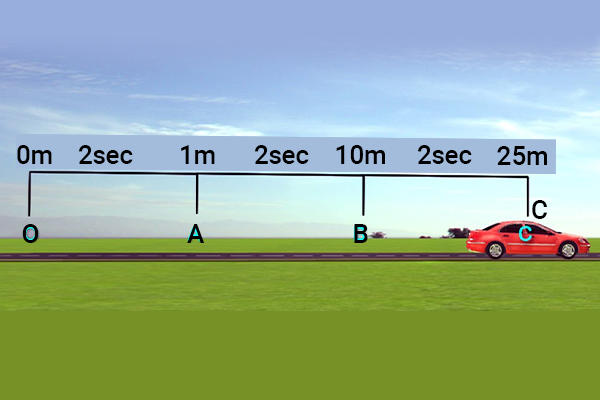
Also Read:
- NCERT solutions for Class 11 Physics Chapter 3 Motion in a straight line
- NCERT Exemplar Class 11 Physics Solutions Chapter 3 Motion in a straight line
- NCERT notes Class 11 Physics Chapter 3 Motion in a straight line
Constant accelerated motion and its formula.
As now we know that constant accelerated motion is if some object is changing its speed with regular interval of duration.
And formulas used are ;
Writing the three equations of uniformly accelerated motion
Vf = v0+ at
∆x =vo t + ½ at2
∆x = ½ ( vf + vo) t
Now we all have studied,
Also check-
- NCERT Exemplar Class 11th Physics Solutions
- NCERT Exemplar Class 12th Physics Solutions
- NCERT Exemplar Solutions for All Subjects
NCERT Physics Notes:
Frequently Asked Questions (FAQs)
If velocity of a particle increases with time then its acceleration is said to be positive acceleration whereas if the velocity of a particle keeps on decreasing it is known as negative acceleration or deceleration.
If we take a particle moving in xy coordinate plane with a constant acceleration a located at point b at time t which has a position coordinate r and velocity v. It reaches point b’ has a position coordinate r’ and velocity v’ . Constant acceleration a is equal to change in velocity by time.
Freefall is the downward motion under the influence of gravity in other words when the only force acting on an object is gravity the object is said to be in freefall in vacuum that is in no air all objects in freefall accelerate at the same rate regardless of mass likewise a ball falling down with negligible air resistance. Freefall objects falling unaffected by air resistance owners we can’t fall without air resistance but for normal situation the numbers are realistic when things fall they constantly accelerate if we can ignore air resistance all objects excellent at the same rate that is at the acceleration due to gravity on earth at sea level.
In constant acceleration the body moving in a particular direction does not change its direction whereas in uniform acceleration the particle covers an equal distance in equal duration of time hence in both the situation acceleration of the body is zero.
Uniform motion meant uniform velocity but uniform speed is change in direction likewise for uniform circular motion hair the speed of the particle remains same but the direction of particle keeps on changing.
Also Read
05 Feb'25 04:57 PM
11 Jan'25 03:00 PM
24 Dec'24 01:28 PM
27 Nov'24 01:02 PM
26 Nov'24 01:31 PM
20 Nov'24 04:50 PM
20 Nov'24 12:59 PM
16 Nov'24 01:06 PM
14 Nov'24 04:17 PM
13 Nov'24 11:06 AM

